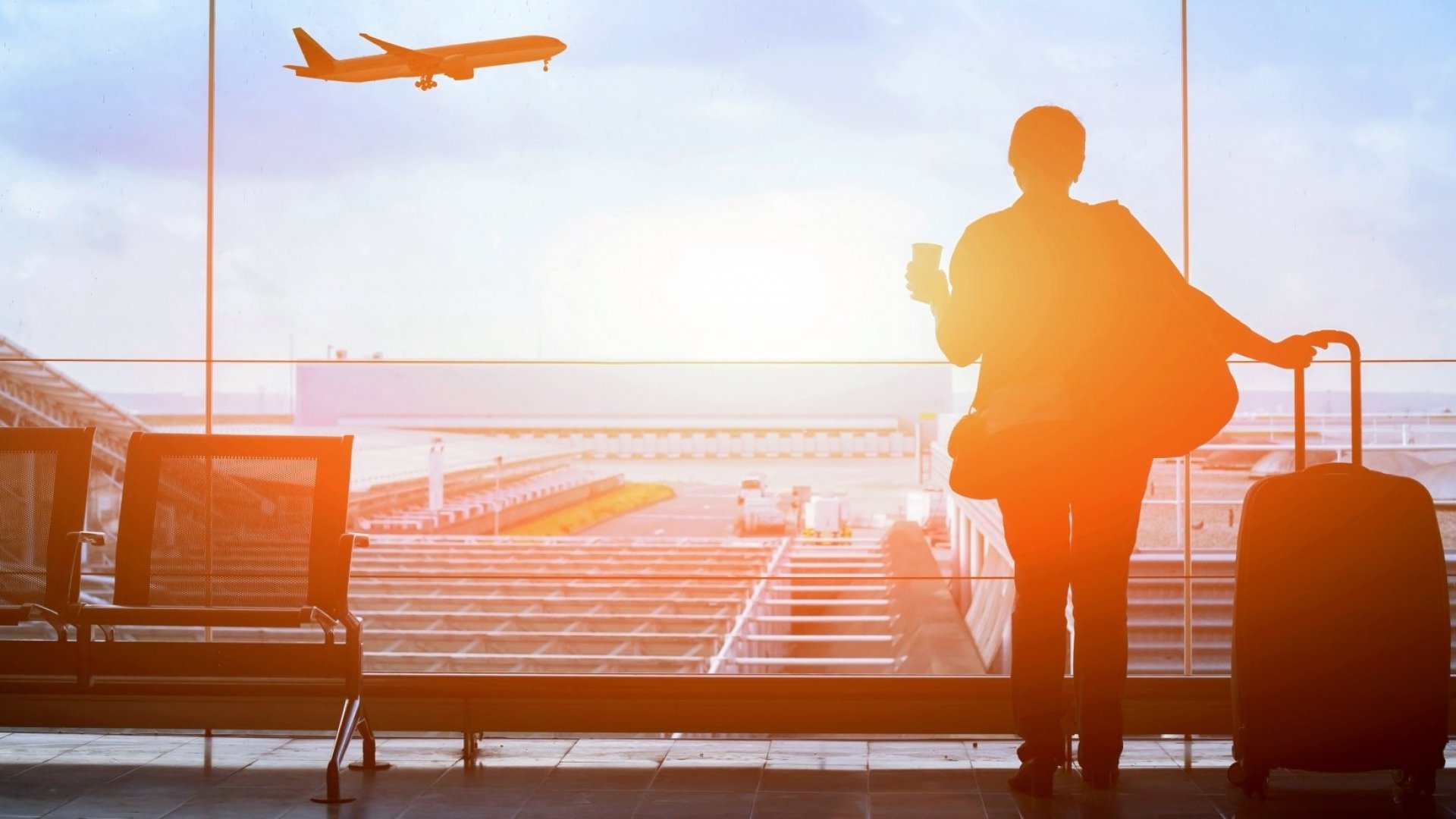Traveling Again - Things To Remember Before Traveling After The Pandemic
Many people are considering traveling again after being restricted to their homes for several years as a result of the Covid situation. After the shutdown of the Covid travel system, many of us are embarking on either our first or second trip outside of the country. Here is everything you need to think about before you leave, from passports to tests to possible delays at the airport.
Author:Michael RachalReviewer:Liam JonesAug 29, 202212.4K Shares517.5K Views

Many people are considering traveling againafter being restricted to their homes for several years as a result of the Covid situation.
After the shutdown of the Covid travelsystem, many of us are embarking on either our first or second trip outside of the country.
Here is everything you need to think about before you leave, from passports to tests to possible delays at the airport.
The Report
International travel is firmly back, as evidenced by the current flood of travelers awaiting passports and queuing at airports.
Many of us are making our first or second trip since the Covid-19 pandemic forced a major travel shutdown, and airports and airlines have indicated that some of us are feeling rusty.
With airports emphasizing the importance of keeping liquids separate in hand luggage and electronics ready to remove and airlines re-issuing baggage, boarding etiquette, and other standard aspects of travel, it appears we may need a refresher on the old holiday checklist.
So, what are the most important things to think about before you fly, train, or ferry away from home?
Everything you need to know is right here.
Is My Passport Required For All "Abroad" Travel?
Yes, except for Ireland, for British citizens.
You don't need a passport to visit our emerald neighbor, which is part of the Common Travel Area, though the Foreign Office warns that "Irish immigration officers will check the ID of all passengers arriving by air from the UK and may ask for proof of nationality, particularly if you were born outside the UK."
As a result, you should bring your British passport."
Furthermore, Ryanair requires all UK passengers flying to Ireland to have a valid passport.
Pack your passport for everywhere else.
Is My Passport Still Valid?
Some countries require that your passport be at least six months away from expiration.
One change that may have occurred since your last trip: Brexit threw a wrench in the works by changing the passport requirements for Britons visiting the EU and wider Schengen Area (including Switzerland and Norway).
While the United Kingdom was a member of the European Union, British passports were valid for travel within the EU until their expiry date.
However, since the end of the Brexit transition period, British passport holders have been treated as "third country nationals," with restrictions on passport issue and expiry dates, as well as time limits on stay almost everywhere in Europe.
If you are a non-EU national and want to visit or travel within the EU or the Schengen Area, your passport must pass two independent tests:
- It must be valid for at least three months after your intended departure date from the EU country you are visiting.
- It must have been issued within the last ten years on the day you intend to enter the EU.
This latter requirement is met by all children's passports.
The rules for everything else vary from country to country and some places are content if your passport expires after your visit; others demand one day's validity, two or three months, or even six months.
Another Brexit condition is that your passport be stamped upon entry and exit from each EU country.
Make certain it is in order to avoid being flagged as exceeding the time limit for non-EU tourists.
Is A Covid-19 Test Required?
Some destinationsare still closed to Brits, while others have removed all travel restrictions, though a few still require a Covid-19 test before travel.
Those who are unvaccinated or only partially vaccinated must often take a test.
A PCR or antigen test within 72 hours or 48 hours before travel is the most common requirement.
The obvious choice is a cheaper, faster antigen (lateral flow) test, but they often have to be taken within a shorter time frame before your flight.
However, watch out for exceptions: some countries require a PCR test or allow an antigen only within 24 hours of your arrival.
Here are a few to keep an eye out for:
- Japan
- China
- Russia
- Thailand
Australia, Thailand, New Zealand, Malaysia, South Africa, and Brazil are among the countries that have recently dropped their pre-departure test for vaccinated visitors.
Some countries, including Canada, have retained random testing after arrival, with a 10-day hotel quarantine if you test positive.
Is Proof Of Vaccination, Such As An NHS Covid Pass, Required?
In the United Kingdom, we've grown accustomed to going about our business without displaying proof of our vaccinations at every restaurant, bar, and theater.
However, many countries still require proof of vaccination as a condition of entry, and some even require it at hotel check-in or other indoor attractions.
Is It Necessary For Me To Pre-Register Online Or Fill Out A Digital Form In The Country I'm Visiting?
Thailand has thankfully abandoned its perplexing Thailand Pass, which previously required all visitors to log extensive details ahead of time in order to be pre-approved for travel.
Other countries that still require online registration of your information include South Korea, which uses the Q-Code system, and the Maldives, where the Traveller Declaration Form is the only requirement regardless of vaccination status.
Israel has a "Entry Statement Form," whereas Indonesiahas a Peduli Lindungi app that requires you to have your vaccination certificate pre-approved before traveling.
Spain has now discontinued its passenger locator form for vaccinated passengers, while Greece and Italy have discontinued theirs for all travelers.
What Is This "Verifly" Business?
For certain destinations, some airlines and cruise lines, such as British Airways and Viking Cruises, require you to fill out travel information on an app called Verifly.
(These include the United States, Canada, and France for BA.)
This is essentially a checklist of documents required for that destination, with the option to upload each document - such as your Covid Pass - to be verified as genuine before you arrive at the airport.
It basically irritates you as a passenger who has done the proper paperwork.
This is optional, but it will likely speed up your check-in process because pre-approved customers frequently join a specific queue.
However, it is difficult to master and requires you to take a selfie to verify your identity - so don't put it off until the last minute.
Is My Health Insurance Going To Cover My Trip?
For many places, your health insurance requirements will be the same as they have always been: multi-trip policies, single-trip policies, policies that include the US or another specific destination, and specialist add-ons like winter sports cover.
Some countries previously required visitors to have purchased a certain level of travel insurance in order to visit, which could include a certain amount of minimum coverage or coverage for Covid-19 medical treatment.
Is A Visa Still Required In This Day And Age?
Not only do many countries still require tourists to obtain and pay for a visa prior to arrival; some have tightened visa restrictions or suspended certain types of visas during Covid-19.
How Much Luggage Am I Allowed To Bring On A Flight?
With self-service bag drops and online check-ins, it's easy to forget that most airline fares include a baggage allowance.
Unless you specifically request a bag in the hold or pay a slightly higher fee, this is increasingly limited to hand luggage only.
When Should I Leave For The Airport?
You may have heard recent horror stories about long lines and missed flights at UK airports.
While this is due in part to a lack of staffing and a sudden surge in holiday travelers flying from our terminals, airports say it is also due to rusty travelers forgetting the basics and causing delays.
As a general rule, you should arrive at the airport two hours before your flight for short-haul flights.
You could add a half-hour if you were really nervous.
What Could Possibly Hold Me Up At Security?
The "security dance" has been honed to the point where it's a seamless, choreographed flow of moves: passport and boarding pouch in front pocket, liquids ready-separated, electronics ready to be removed.
Is It Necessary For Me To Wear A Mask At The Airport Or On My Flight?
If you're flying, the rules now differ from one airline to the next.
The basic rules are that most UK airports now state that wearing a mask is optional but recommended, while airlines generally state that wearing a mask is optional only on routes to and from countries that have relaxed or eliminated their Covid health rules.
What Will I Require When I Arrive At My Vacation Destination?
While entry requirements vary by country (as mentioned above), travel in general is more complicated than it was prior to 2020.
Furthermore, the UK's new status as a "third country" in relation to the EU means that border officials in EU countries may request proof of your accommodation plans, onward travel arrangements, and even financial resources upon entry.
Conclusion
These are a few tips to remember before traveling again.
Happy travels and enjoy your time out on the road.
Jump to

Michael Rachal
Author
Michael Rachal believes that luxury lies in the details. With over 20 years of experience in the luxury travel industry, he has crafted hundreds of bespoke itineraries for clients seeking personalized, unforgettable experiences.
Whether guiding clients through private cultural tours or curating culinary journeys with world-renowned chefs, Michael ensures that each trip is tailored to perfection.
His ability to anticipate needs and exceed expectations has earned him a reputation as a leading expert in luxury travel.

Liam Jones
Reviewer
Liam Jones has made it his mission to prove that adventure doesn’t need a hefty budget. Having traveled to over 40 countries, he specializes in finding affordable ways to experience the world, from the best street food in Bangkok to hidden gems in Lisbon.
Liam’s travel tips have reached thousands of readers, empowering them to see the world on a shoestring budget without sacrificing quality. With a deep passion for local cultures, he continues to share his travel hacks, ensuring adventure remains accessible to all.
Latest Articles
Popular Articles